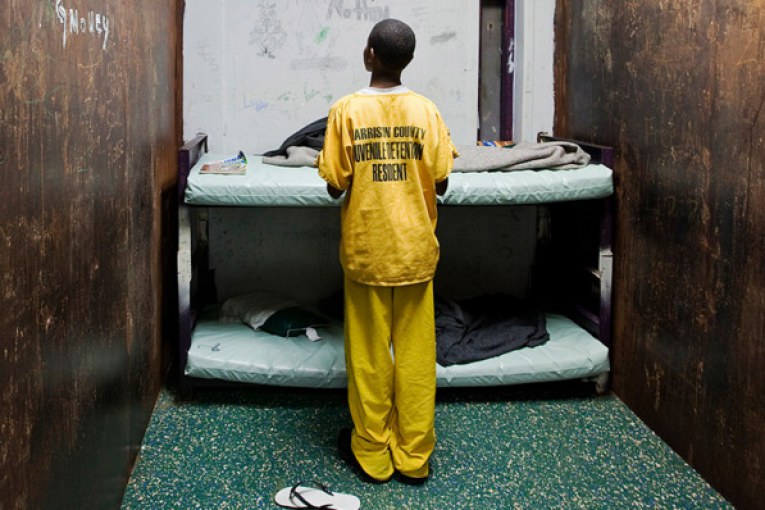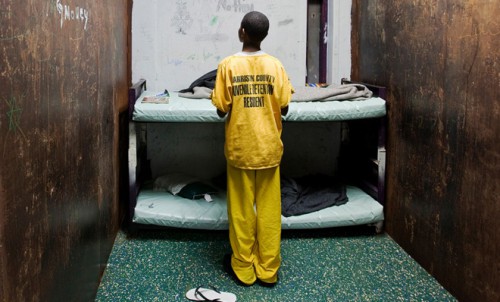

By Madison Whittemore
OAKLAND, CA – Dozens of community advocates stood on the steps of the René C. Davidson Courthouse in Oakland last Tuesday to show support for District Attorney Pamela Price’s campaign promise to not charge juveniles as adults.
This press conference followed in the wake of the “tragic killing” of Jazy and Angel Garcia in 2022 by a 17-year-old who has since remained in the juvenile justice system.
Cynthia Nunes, the decarceration campaign coordinator at Urban Peace Movement, explained, “It will be critically important that community organizations express their support for her decision in this case,” referring to DA Price’s decision not to try the young man—convicted of killing the Garcia children—in adult court and the following “backlash” that DA Price has received following this decision.
Lorrain Taylor, the founder of A 1000 Mothers to Prevent Violence, wrote that after having lost two of her own sons to gun violence, “The pain of losing your children to violence is unimaginable.”
In her written statement, Taylor explained that after the loss of her two sons, she began to seek out other homicide victim survivors in the area and discovered that there were “extremely limited services available” to her and others in similar grief positions.
Taylor then founded “1000 Mothers to Prevent Violence,” a “nonprofit that focuses on providing compassionate support and services to homicide victim survivors.”
“As a survivor, I have had to learn the difference between accountability and punishment. What survivors want is accountability. They want the person who harmed our loved one to take responsibility for what they did and take action to repair the harm,” Taylor asserted in her statement.
Taylor added her belief that youth and children are capable of making positive changes when they are given the support, opportunities, and resources needed to “turn their lives around.”
Referencing her time spent volunteering at San Quentin State Prison, Taylor noted, “Adult prisons are not built for accountability, they’re built for punishment,” advocating for the justice system to be more oriented towards prevention and showing support for DA Price’s “commitment to treating children like children.”
Sympathizing with the Garcia family’s “tragic loss” of their two sons, Tinisch Hollins, executive director for Californians for Safety and Justice, also showed her support for DA Price’s commitment not to try children as adults and stated, “In order for us to see the cycle end we have to change the way we do accountability.”
According to Hollins, the justice system needs to provide youth with more rehabilitation options for struggles such as mental health, addiction, and trauma “that likely brought them into contact with the system in the first place.”
Founder of the Freedom Community Clinic, Dr. Bernadette Lim, turned to the science of adolescence to show her support for DA Price, honing in on how the process of making adult decisions is a “long and complex journey” and not one that is immediately developed at milestones such as 18 or 21.
“The brain’s frontal lobes, especially the prefrontal cortex, which governs reasoning, decision making, judgment, and impulse control are the last parts to reach full development in adolescents’ age,” Dr. Lim cited, explaining how the incarceration of youth in adult prisons “deprives them of access to essential programs and services that are fundamental to successful reentry into their communities,” such as education, counseling services, and healthcare.
“We must emphasize the intersections between healing, justice, and accountability for youth. We must honor the realities of adolescence as a critical period of development that can be healing and can have rehabilitation in the wake of violence or trauma,” Dr. Lim concluded.
Sharing his own story of being formerly incarcerated at 17 years old for attempted murder and multiple other felonies, George Galvis, executive director of Communities United for Restorative Youth Justice, spoke about the importance of giving youth the opportunity to seek rehabilitation and change their lives for the better and urging people to question how “we fail young people who cause harm.”
“Had I been charged as an adult, I wouldn’t have been able to do the things that I did, I wouldn’t be able to touch the lives that I have,” Galvis stated, referring to the hundreds of young children he has mentored and the hundreds of families he has helped since being incarcerated in the juvenile justice system versus the adult system.
Although Galvis remained within the juvenile system and was not tried as an adult, others such as John Vasquez have suffered from being “warehoused in adult prisons for decades,” Vasquez noted in the press conference.
Vasquez was transferred to a maximum security prison where he served a 25-year sentence with no rehabilitation opportunities when he was just 16 years old.
Vasquez cited the adult violence he was exposed to at such a young age because of being charged as an adult and even noted that, while incarcerated, “One of the guards even told me, ‘hey youngster, do yourself a favor and hang yourself…you’re never going to get out of here.’”
Reflecting on the lack of rehabilitation opportunities he was provided with and the trauma he had to endure, Vasquez said, “Just imagine what positive contributions I could have made if I were kept in the juvenile justice system and received the kind of treatment that all young people should be given to heal, thrive, and succeed.
“I am more than the crime I committed, all children are, and redemption should be a right for all kids,” Vasquez declared in support of DA Price.
Pecolia Manigo, the political director for Oakland Rising, concluded the press conference by calling on all Alameda residents, elected officials, and other capable organizations to show sustained support for DA Price’s promise to try juveniles in juvenile court.
“I do fundamentally believe in the power of our juvenile justice system and the power of our community programs and the power of mentors to really work with our young folks,” Manigo stated.
Despite acknowledging the struggles that many youth in “underinvested” neighborhoods “infused with systems that do not serve them” face (such as in parts of Oakland), Manigo remains optimistic that policy changes can create “the society that we all believe is possible.”
In the aftermath of the critique that DA Price is facing, Manigo argued, “We are standing here today because we believe in the rehabilitation of young folks. We are standing here today because we believe it is important to continue to urge our district attorney to fulfill her commitment, to fulfill her campaign promise to try juveniles in juvenile court and to end the overcriminalization of our young folks.”